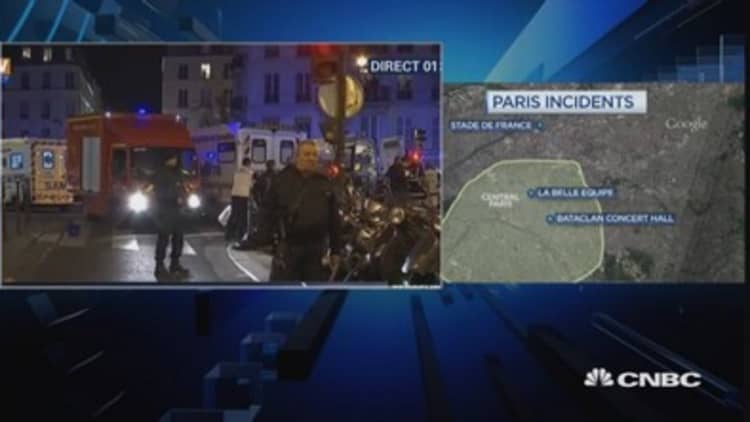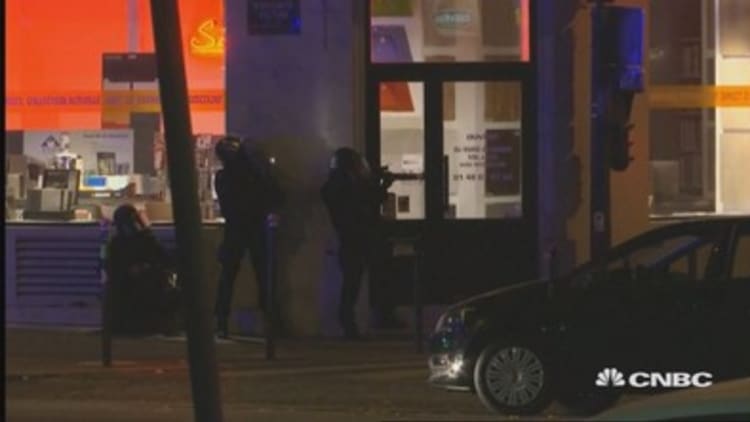There are many questions about Friday's attacks on the French capital which left at least 127 people dead and scores injured.
Some may not be answered for some days or even weeks but here we take a look at some of the issues, which can be traced at this stage, surrounding the extraordinary outbreak of violence against ordinary Parisians.
Terrorist tactics


The places targeted yesterday in the attacks claimed by Islamic State, were places used by ordinary people – a more effective method of creating terror and polarizing communities than if landmarks, commentators or politicians were in the line of fire.
The recent apparent bombing of a plane of Russian tourists heading back from Egypt (which has not yet been fully verified as an IS attack), and the attacks on the offices of satirical magazine Charlie Hebdo and a Jewish supermarket in January, also helped create the impression that no-one is safe.
The terrorists appear to have dodged Western intelligence in planning and carrying out the attacks, which suggests that their operations may be becoming more sophisticated. With Western governments including the U.K. already calling for greater powers to monitor internet activity, these events may lead to further and closer monitoring.
Igniting Islamophobia and making Westerners less sympathetic to those fleeing from IS's activities in the Middle East to Europe may also be part of the attackers' plans. The far-right National Front in France has gained electoral power in recent years, partly by appealing to anti-immigration sentiment.
France in Syria
France has recently joined the Western powers which have intervened militarily in the escalating violence in Syria.
On Tuesday, the country's Defense Minister Jean-Yves Le Drian confirmed that France had begun bombing and was targeting "the Islamic State group's oil infrastructure" – one of the group's key sources of funding.
One witness who escaped the Bataclan concert hall, where close to 100 people were believed to have been killed, told reporters that one of the attackers blamed France's intervention in Syria.
France has a long history of colonization in North Africa, and has been criticised for its poor integration of communities from former colonies within French society, which has made it a target for resentment in the Islamic world.
There are important talks about the situation in Syria beginning in Vienna this weekend, with more than 20 countries including the U.S., Saudi Arabia, Iran and Russia represented. Syria has been torn by war for nearly five years, with fighting between former president Bashar al-Assad's regime; rebel groups and IS militants killing more than a quarter of a million Syrians, forcing an estimated 5 million refugees to flee the country and displacing an estimated 7 million people.
‘Jihadi John’
The reported death on Thursday night of the U.K. born IS terrorist who appeared in videos killing Western hostages was an important public relations victory for the Western powers. U.K. Prime Minister David Cameron described it as a "strike at the heart" of IS. With this attack, IS may have shown it can strike back.
Rouhani visit
The growing rapprochement between Iran and the West was supposed to be crystallised by a high-profile visit by Hassan Rouhani, the most progressive Iranian President for decades, to France and Italy this week. This visit has now been postponed.



